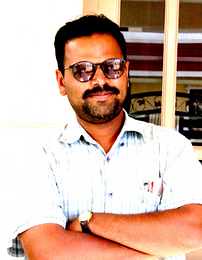Icrisat benefits dryland farmers through ICT
NEW DELHI: Information and communication technology (ICT) mediated open distant learning (ODL) methods can create marvels when applied in right context. It can then really become information and communication technology for development (ICT4D).An humble attempt by the International Crops Research Institute for Semi-Arid Tropics (Icrisat) in setting up of the Virtual Academy for the Semi-Arid Tropics (VASAT) has started transforming farming pattern and life styles of farmers in the world’s most drought-prone regions.
VASAT, an informal and virtual information, communication and capacity building coalition, caters to a cluster of 37 villages in Mahboobnagar district in Andhra Pradesh, where the literacy rate is as low as 35%. In fact, 75% of the workers are engaged in agriculture and allied activities. About 60% of the area is rain-fed, only 15% are under irrigation and remaining 25% are waste lands.
Another difficult area where VASAT is operating is in Khahe area near Sadore in Niger in West Africa. The principal technology in Kahe is the low frequency and solar-powered community FM radio stations linked to satellite-based digital radio system operated by the World Space Corporation.
A pilot hub established in Niger in partnership with the local federation of farmers operate a solar-powered low frequency FM radio station. The other pilot station is located about 300 km from Niamey in a village called Gabi. Radio Kahe has a 20-km radius, reaching about 4,000 village folks.
In the Niger VASAT project, a number of leading NGOs like Oxfam are associated. Regional organisations like ACMAD (for weather information) and the FirstVoice International (offering support for digital radio-based information delivery) are actively involved, alongwith partner institutions in the GEF-supported Desert Margin Program. The Niger National Council for Communication is a key partner in helping the roll out through community radio.
There are important ICT4D regional networks like Chasquinet in Latin America and Acacia in sub-Saharan Africa. South Asia is considered as the international test bed for ICT4D with almost 150 projects in progress. The actors are highly diverse, ranging from rural NGOs to large corporations and projects are of varying scales and sophistication.
Organisations like MS Swaminathan Research Foundation in India and the grameen group in Bangladesh are well known for their pioneering work. But how is VASAT different?
In this context, ICRISAT director-general, William D Dar explains: "Our approach is both bottom-up and top-down and participatory in nature. It is a demand-driven technology generation, assessment, refinement and transfer."
A pilot information hub with connectivity to the internet is set in Addakal village in Andhra Pradesh in partnership with Andhra Pradesh Rural Livelihoods Programme. This hub is operated by a 4,200-member federation of micro-credit societies of rural women, Aadarsha Welfare Society, and is linked to 1,200 rural ICT centres.
Story









0 Comments:
Post a Comment
<< Home